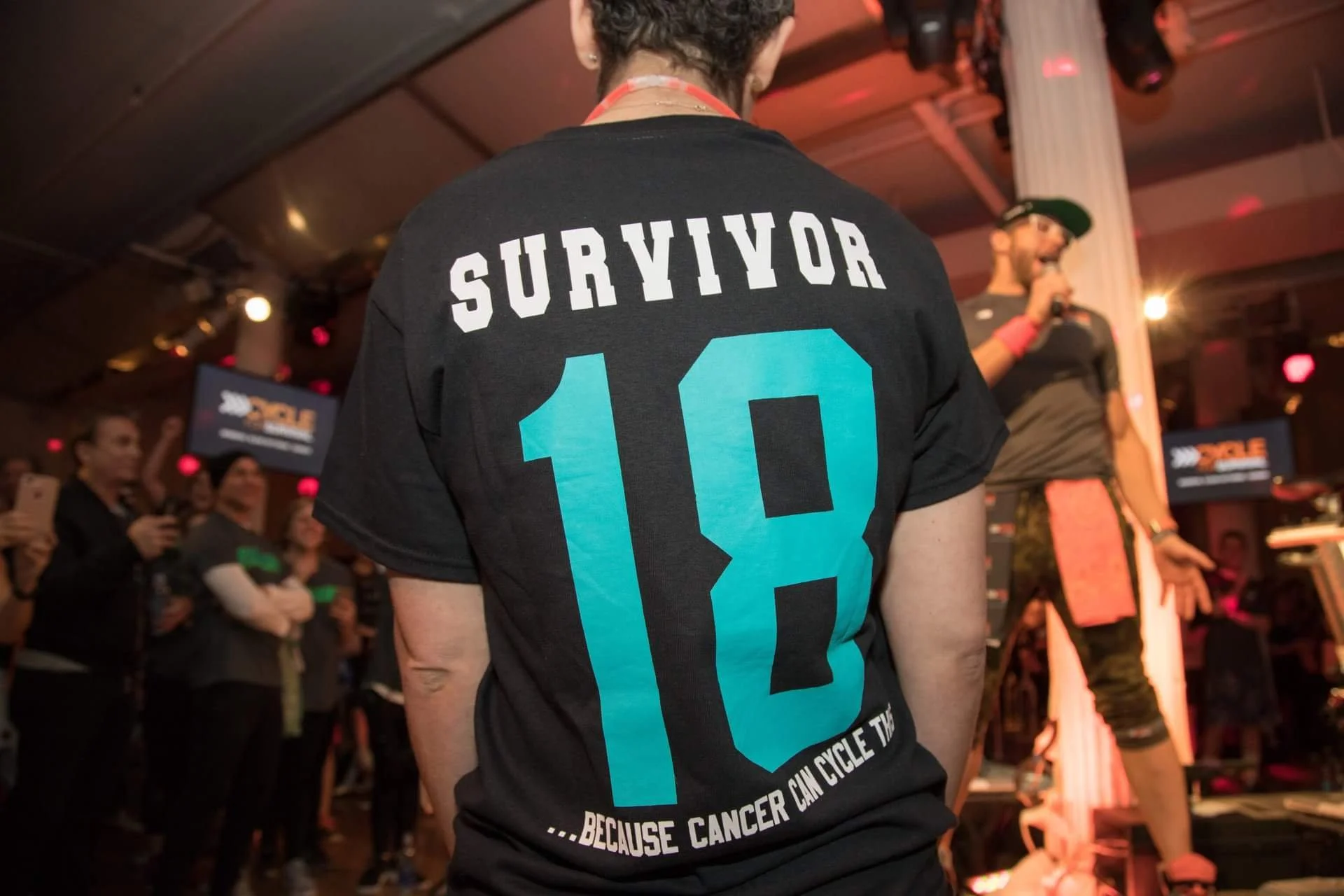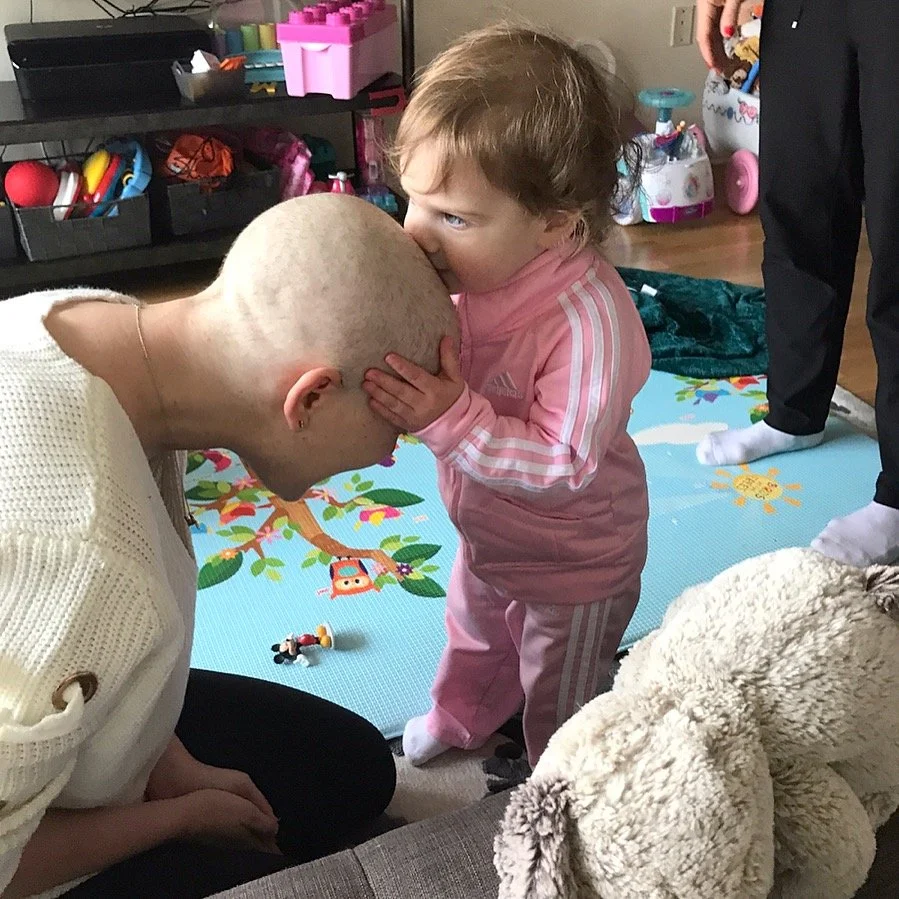Eight Lessons in Eight Years of Survivorship
By: Dani Strumeier
I’m writing this from the waiting room at Memorial Sloan Kettering waiting for a CT scan. The nurse who’s going to put in my IV just came by to ask me a few questions. She looked at me with those sad eyes - the “you’re too young to be here” eyes - and after 8 years, I’m grateful they think I’m still too young, but I’m no stranger to those eyes and I appreciate the unspoken sympathy.
I’m not particularly worried about this scan; this one is more prophylactic than diagnostic, but being back here at MSK brings so much emotion to the surface regardless of the circumstances.
I was diagnosed with ovarian cancer in 2017. After 19 chemo treatments, 4 surgeries, and countless blood draws, my doctors called my treatment a success and me a survivor. In a few short months everything around me had changed, and that was obvious, but except for the immediate PTSD and the physical changes to my body and appearance, the everlasting impacts of my cancer diagnosis weren’t yet apparent. I put so much pressure on myself to feel grateful. To make it seem like I came out a completely different person on the other side of my treatment. I tried to convince myself and others that little things no longer bothered me, that I was confident and proud of who I was, that cancer taught me life is too short to do anything other than what makes you happy. But the little things bothered me more, I was deeply embarrassed by who I was, and I returned to the same job I had and hated before I got sick. And hardest of all, I was ashamed by all of it. This immense pressure to have these positive instant takeaways was crippling, and I struggled with it for years. But what I didn’t know was that the changes were happening behind the scenes, subconsciously and slowly. So in writing this extremely cathartic blog post, it feels almost like a relief to share that after 8 years of processing what happened to me (yes, what happened to me - more on that later), I finally feel like I can see the changes and put into words the very many lessons I’ve learned from going through cancer at a young age. In honor of 8 years from my cancer diagnosis, here are 8 things I’ve learned since then:
1. Healing is not linear
In the immediate period after my cancer treatment, I would have a good day or two, followed by many many bad days. The rollercoaster of emotions never seemed to slow up. Whether it’s a diagnosis of an illness or anything else you’re going through personally, healing involves ups and downs, layers of emotions, unexpected triggers, and new realizations. Healing doesn’t happen in a straight line but it’s important to remember that even on the tough days, you’re still moving forward.
2. There is such a thing as toxic positivity
So often we’re told to look on the bright side and find silver linings in absolute shit. If your situation sucks, let it suck. Sure, it can help to be positive, but you certainly don’t have to feel grateful in the moment for your good prognosis while you’re throwing your guts up! And this message applies to all tough situations, not just cancer. When life is hard, acknowledging the challenge and feeling all the things that come with it is important for growth.
3. It’s not your fault
When I was sick, I tried to make sense of my diagnosis. I didn’t have a genetic mutation that put me at a higher risk of developing ovarian cancer, not much of a family history either. The only thing that made sense at the time was that my illness was self inflicted. I was drinking margaritas pretty often to destress from my extremely demanding job. I was indulging in more steak than usual, snacking on any kind of candy I could get my hands on during tax season. I blamed myself for my diagnosis for a long time and it wasn’t until recently that I forgave myself and came to peace with the reality. Bad things happen to us for absolutely no rhyme or reason and sometimes we punish ourselves if it means we have an answer to the unknown. Cancer happened to me. I’ll never know why. I didn’t do this, I didn’t deserve this.
4. Movement is medicine
I lost almost all of my muscle throughout the course of my treatment. I stayed in bed for almost 3 months straight, and I hated myself for that. When I found Jane DO a few weeks after my treatment ended, I started to feel alive again. I remembered what it was like to be excited about my body, to see and feel myself getting stronger with every repetition and private training session. Even today, some days it’s hard to get out of bed, but there’s never a day I make it to class that I regret showing up. Movement, in a way that doesn’t feel like work, is a gift and has a positive ripple effect into every facet of my life.
5. Feel something, say something
If something changes or starts to feel off, don’t ignore that shit! Don’t freak out, but don’t dismiss yourself as crazy or a hypochondriac. I knew something felt off in my pelvic area and told trusted friends that encouraged me to see a doctor. Having those conversations with myself and friends made me a lot more aware of things that weren’t necessarily “normal.”
6. Don’t take no for an answer
You know your body. Let me repeat that. YOU! KNOW! YOUR! BODY! Similar to #5, don’t let anyone tell you you’re a hypochondriac or dismiss your concerns. Demand the testing, demand the conversation. If it turns out to be nothing, at the very least you have peace of mind, and that shit is priceless.
7. Community is everything
I never could’ve made it through the during, immediate after, and long term after my diagnosis without my circle. Surround yourself with people who let you be vulnerable, who provide sound advice, and who can grow with you during and beyond your tough days.
8. The lessons will come later and show you just how much you’ve grown.
See above 1-7 . Patience is a virtue as they say.
Eight lessons for eight years, but the truth is I’m still learning. I thought survivorship meant tying a pretty bow around my story and moving on, but I’ve learned it’s more about living in the mess and letting it teach you along the way. Cancer changed me in ways I couldn’t see for a long time, and it continues to shape how I move through the world. I don’t pretend to have all the answers, but I know this: growth takes time, healing takes patience, and even the hardest chapters can leave you with lessons you carry forever. If you’re walking through something hard, cancer or otherwise, know that it’s okay to not be okay, it’s okay to take your time, and it’s okay to just keep going.


